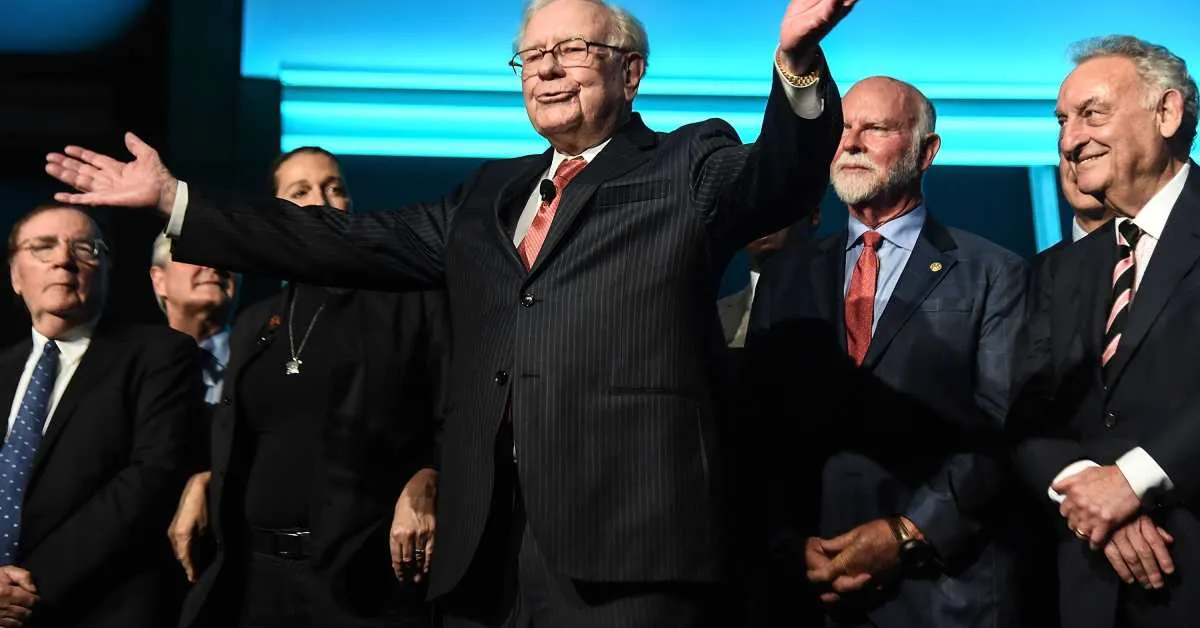
Warren Buffett, the chairman and CEO of Berkshire Hathaway (BRK.B), has achieved a remarkable net worth of $150 billion, solidifying his status as one of the world's wealthiest individuals. Since taking the helm in 1965, Berkshire Hathaway has delivered an astounding compounded annual return of 19.9%, effectively nearly doubling the performance of the S&P 500. Buffett's investment strategy is particularly noteworthy; he tends to shy away from high-growth stocks and instead focuses on value-oriented investments, showcasing his unique approach to portfolio management.
Buffett's success is not just about numbers; his down-to-earth wisdom and investment philosophies have made him one of the most influential portfolio managers in history. Each year, tens of thousands of people attend Berkshire Hathaway's three-day annual meeting, often referred to as the "Woodstock for capitalists." Over the past 60 years, Buffett has hosted this event, offering invaluable insights during his extensive question-and-answer sessions that cover various topics, including markets, stocks, and the economy.
This year, Buffett tackled the contentious issue of tariffs and the escalating trade war during the annual meeting. The U.S. economy had been showing signs of strain even before President Donald Trump announced aggressive reciprocal tariffs on April 2, dubbed 'Liberation Day.' The unemployment rate had started to rise from its 2023 low of 3.4%, reaching 4.2% in April, according to the Bureau of Labor Statistics. This increase in unemployment coincided with persistent inflation that forced consumers to prioritize essential purchases over discretionary spending.
The Federal Reserve reacted to the slowing job market by cutting interest rates by 1% last Fall. However, with inflation remaining above the Fed's target of 2%, the possibility of further rate cuts this year appears slim. The Personal Consumption Expenditures (PCE) inflation rate, excluding the volatile food and energy sectors, stood at 2.6% in March. This economic backdrop has created a challenging environment, complicated further by tariffs that have ignited fierce debate among economists and policymakers.
Proponents of tariffs argue that they are essential for bringing manufacturing jobs back to the United States, while critics caution that such measures could lead to increased prices, exacerbating inflation and potentially harming the economy. The outcome of this debate largely hinges on the success of trade negotiations with major partners, including China. Although President Trump temporarily paused most reciprocal tariffs for 90 days to facilitate negotiations, significant tariffs remain in place, including a 25% levy on imports from Canada and Mexico, and a staggering 145% tariff on imports from China.
Consumer sentiment has taken a hit, with the University of Michigan’s Consumer Sentiment Survey dropping by 8% to 52.2 in April, marking its fourth-lowest level for the month since 1952. Additionally, inflation expectations for the coming year surged to 6.5%, up from 5% the previous month. The ISM Manufacturing PMI, which reflects factory activity, fell to 48.7 in April from 50.9 in January, indicating a contraction in the manufacturing sector.
During his remarks at Berkshire Hathaway's annual meeting, Warren Buffett expressed a measured view on America's trade deficit. He articulated that increased prosperity around the globe does not have to come at the expense of the U.S. “The more prosperous the rest of the world becomes, it won’t be at our expense,” Buffett stated, emphasizing a collaborative approach to global trade. He warned that a U.S. trade war could backfire, suggesting that tariffs could be seen as an act of war and could lead to larger geopolitical issues.
Buffett’s perspective aligns with that of other financial leaders; for example, billionaire fund manager Ken Fisher has also voiced concerns about the implications of tariffs on the economy. As discussions on tariffs and trade continue, the financial community watches closely, recognizing the profound impact these policies could have on both national and global markets.